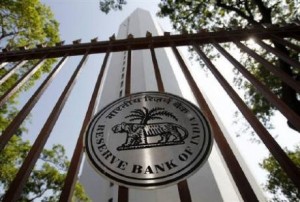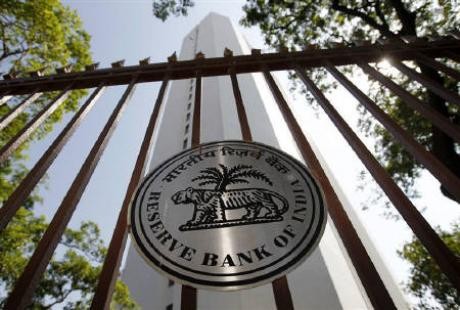News Point: The plans are to transform Mumbai into global financial destination.
 Mumbai has been the undisputed financial capital of India. The emergence of other business destinations, like Bangalore, Gurgaon or Pune could not take the sheen out of the city, even in the wake of infrastructure deficit and other urban problems plaguing the peninsular city. Now the Mumbai city is poised to elevate itself to the next level of business destination. The MMRDA (Mumbai Metropolitan Regional Development Authority) plans to make Mumbai a major global financial hub.
Mumbai has been the undisputed financial capital of India. The emergence of other business destinations, like Bangalore, Gurgaon or Pune could not take the sheen out of the city, even in the wake of infrastructure deficit and other urban problems plaguing the peninsular city. Now the Mumbai city is poised to elevate itself to the next level of business destination. The MMRDA (Mumbai Metropolitan Regional Development Authority) plans to make Mumbai a major global financial hub.
The MMRDA has announced that it has received three bids for preparing a master plan of an International Financial Services Centre (IFSC) at Bandra-Kurla Complex. MMRDA’s approval for building IFSC in Mumbai will favorably contribute in developing Mumbai as a Global Financial Centre (GFC).
Mumbai on way to global financial hub
MMRDA received 3 bids to prepare master plan of IFSC at BKC
The MMRDA has received bids from a consortium of Tata Consulting Engineers and Townland Consultants of Hong Kong; INI Design Studio of Ahmedabad; and Ramboll and Henning Larsen Architects of Denmark
GFC will attract FDI and domestic investment into the city
Entry of foreign financial companies to make Mumbai more business competitive
Mumbai already is the primary financial center for India, housing the major Indian stock exchange like the BSE, brokerages, asset management companies (including majority of the mutual fund companies), headquarters of most Indian state-owned and commercial banks, as well as the financial & monetary regulatory authorities of India (SEBI and RBI among other institutions). Mumbai has a cosmopolitan flavor and offers a much better culture for financial services than other cities in the country.
On the other hand, lack of physical infrastructure and the developments not keeping pace with rise in population has been a major problem faced by the city. Also government regulatory policies need to be streamlined and become more business friendly if Mumbai is to make rapid strides in its development policies. Further liberalization is requires if the city is to attract global investment and business to this part of the world.
Thus, while there are inherent strengths of the city as GFC, there are shortcomings which need to be considered. This strengths and loopholes include:
Strengths:
Facilitating FDI: Recognized as GFC, Mumbai will attract many international corporations to set up their base in the city proportionally providing efficient services to the consumers. This will also facilitate foreign direct investment in the city, thereby accelerating the state’s economical position and its contribution to the country’s GDP.
Venture Capital/Investment Banking: Establishment of IFSC will give a major boost to venture capital and investment banking domain. This will result in financial sector expansion, new products and services in the market, smart technological innovations and new investment portfolios enhancing the lifestyle of the consumers.
Weaknesses:
Threat to local industries: While GFC will boost many sectors and industries, it will also pose a threat to small domestic industries. With the entry of global players with their technology and investments, local players might not be in a position to compete with them after a given point, especially in a market like Mumbai which is already saturated with other prominent players.
Though the shortcoming of the city as GFC will have a substantial impact to the small businesses but positive implications and a slew of constructive changes will result in bringing optimistic implications to all the stakeholders.
Opportunities:
Chain of financial centres: Developing one successful GFC can pave the way for more such financial centres since Mumbai has many pockets of economic influence. After BKC, more such GFCs can be developed in places like Nariman Point, Parel, Andheri and Navi Mumbai. This will make Mumbai the global financial destination in true sense of the term.
Threats:
Infrastructure bottlenecks: Since the financial centres attract more human movement and demand for residential spaces in and around, it may prove to be an infrastructure nightmare, if the existing infra is not upgraded on an urgent basis.
Escalation in property prices: More demand of property in and around the GFCs means more pressure on the demand side, thus leading to property price hike. This can lead to uneven urban growth since this has a chain effect on the lower demand in other areas beyond the GFC.
Sector optimistic
Manju Yagnik, Vice Chairperson of Nahar Group maintains that the MMRDA has a Master Metro plan in place, with regards to which it had already got Maharashtra State Government’s approvals for Metro 3 (Colaba-Bandra-SEEPZ) and Metro 4 (Wadala-Ghatkopar-Thane-Kasarvadavli). With the help of World Bank, MMRDA has formulated this project in order to improve the traffic situation in Mumbai, through better transport connectivity.
There will be a fast corridor project built from CST (Chhatrapati Shivaji Terminus) to Panvel, along with a connection to the planned new airport (at Navi Mumbai). This also includes a traffic dispersal model for efficient mobility and connectivity.
“The infrastructure planned would develop North-South road links in the suburbs including a Mass Rapid Transit connectivity, Facilitate safe and convenient movement for pedestrians (Subways/FOBs/Footpaths including Skywalks), strengthen and augment East-West connectivity in the suburbs. It will also provide for efficient and fast public transport corridors, provide high capacity uninterrupted road connection to both the Airports, provide bus terminals and create facilities for passengers,” says Yagnik.
The MMRDA has already planned to make Mumbai a smarter city by having five new business hubs in Kanjurmarg, Kalyan, Bhiwandi, Kalwa and Vasai-Virar which will be well connected in terms of transport through metro and road. The efforts are clearly seen, and one could expect Mumbai to become a very well organized city in the next decades.
Kaizad Hateria, Brand Custodian & Chief Customer Delight Officer, Rustomjee Group points out that ever since its formation in 1975, MMRDA is immensely contributing to make MMR a business hub through extensive infrastructure development enhancing the lifestyle of Mumbaikars. Constant development of groundwork projects across the sectors like housing, transport, water supply and environment have made Mumbai globally recognized for its relentless contribution in country’s economy.
“In alignment of on-going developments, MMRDA is also focusing to take Mumbai a notch higher through the development of International Financial Services Centre (IFSC) thereby developing the state as a global financial hub (GFH). Working towards the dream project of Devendra Fadnavis, MMRDA had set the ball rolling long back in February 2016 by setting up a process for establishing IFSC. Though the path is difficult in the current scenario with regards to other infrastructure projects in pipeline, MMRDA will be in a position to draw a feasible solution at the earliest,” says Hateria.
Opportunities galore
The professionals in Mumbai are also optimistic. Javed Iqbal, a marketing professional with an MNC points out that of late the job opportunities in Mumbai were not as good as it used to be. He feels the emergence of GFC will change the dynamics of job market as well, thus reviving Mumbai as a job market once again.
“The emergence of other job market locations like Pune or Nashik had taken some sheen out of Mumbai which used to hold the traction for professionals. With more global financial centres in Mumbai, the city will yet again be first choice for professionals due to more employment opportunities and better salaries,” says Iqbal.
Mumbai is naturally blessed with a natural and safe port with fair weather much of the year round. The city has been a center for trade and commerce over the centuries; which have now grown to be regarded as the commercial capital of the country.
Mumbai has traditionally owed its prosperity largely to its textile mills and its seaport till the 1980s. These are now increasingly being replaced by industries employing more skilled labour such as engineering, diamond polishing, healthcare and information technology and many more diversified industries. Now is the time to take it forward to the next level of economy.
While developing Mumbai as GFH, positive implications have already started rolling in with more FDI pouring in different sectors and international brands and conglomerates are establishing their base in Mumbai. With the current efforts by MMRDA to develop IFSC, it will be soon that Mumbai emerges as a home to many international companies, further branding MMR as a global financial hub.





